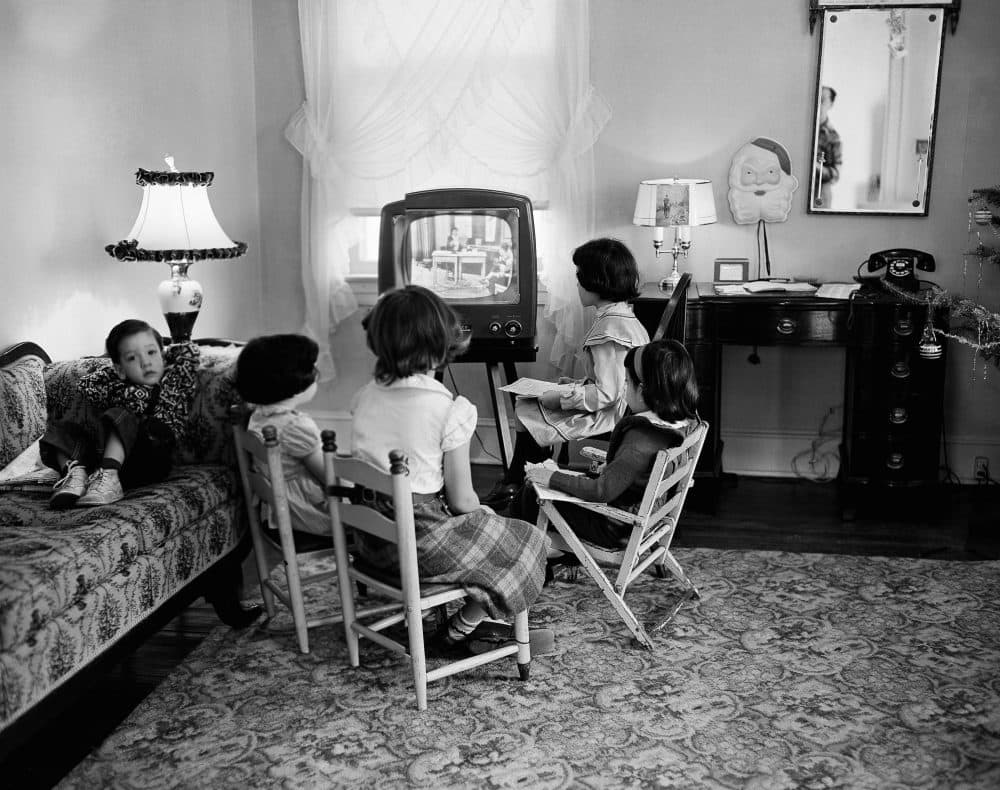Advertisement
Did The Baby Boomers Ruin America?

“Since the Boomers’ ascension to power, America has accomplished far too little, and in many important ways, has slid backward.”
“The difference between what is and what could have been is substantially the product of Boomer mismanagement and selfishness. … Their collective, pathological self-interest derailed a long train of progress, while exacerbating and ignoring existential threats like climate change.”
“As a generation, the Boomers present as distinctly sociopathic, displaying antisocial tendencies to a greater extent than their parents and their children.”
OK, I get it: My generation sucks. Venture capitalist Bruce Cannon Gibney spares no venom in his recent, data-laden indictment, “A Generation of Sociopaths: How the Baby Boomers Betrayed America.” Gen X’er Gibney argues in his book that the key driver of American failure is not ideological so much as generational.
The Baby Boomers — swaddled in affluence, morally and cognitively stunted by bottle-feeding (really — read the book), permissive parenting, and the boob tube — embraced it’s-all-about-me politics once we came to dominate the electorate in the early 1980s. It’s been downhill ever since, as we punted on national problems except when they affected our personal interests.
And so: our public works are rotting, our entitlement programs will cosset us Boomers while our progeny stagger under the bills, our planet continues to warm unsustainably, and other neglected problems pile up (including the pitfalls of artificial intelligence, which Boomers will ignore “so long as Amazon’s neural networks continue to improve the timely delivery of Depends.”)
... our current Boomer leaders, including the president and vice president, are poster boys for the book’s argument.
That line captures Gibney’s engagingly fun style, even as he heaps deadly serious blame. “Not all Boomers are sociopaths, and not all of them deserve to be condemned,” he writes. “But many Boomers do behave sociopathically, and as a generation, their management has been disastrous and needs to be terminated.”
By “terminated,” he’s not suggesting you sign do-not-resuscitate orders for your Boomer parents at Happy Acres. Rather, he’s counting on the natural evolution of the electorate. This year’s midterm elections mark the first time that more Millennials will be eligible to vote than Boomers, though whether they’ll take advantage of that fact is an open question.
Gibney focuses on the economic consequences of Boomers’ dominion, which is fair enough, as his generation got left holding the bag. But that focus skates over how we might have bettered the world in other areas, from medical advancements by Boomer researchers to Boomer President Bill Clinton’s intervention against ethnic cleansing in the 1990s.
Advertisement
Yet what stands out about Gibney’s book, ultimately, is its conventionality.
The economic problems he spies, and his solutions for them, are neither novel nor unreasonable. He merely wraps his analysis in deliberately provocative branding that pins the State of the Union on a generational mental illness, going so far as to consult the Diagnostic and Statistical Manual of Mental Disorders for criteria of sociopathy.
You can disagree with his view of Boomers — the Pew Research Center finds Millennials have a higher opinion of us than does Gibney — but he’s indisputably right in his conclusions: Our infrastructure has gone from best in the world to lousy. Entitlements, particularly Medicare, do need shoring up. Inequality is plundering younger Americans of the prosperity Boomers enjoyed. Only fools dismiss the scientific consensus that we must address climate change. Taxes and spending must be jiggered to address these challenges.
(And yes, for some geriatric Boomers, Amazon’s Depends delivery might add sunshine to a cloudy day.)
While not everyone born in the two decades after World War II is a sociopathic jerk, our current Boomer leaders, including the president and vice president, are poster boys for the book’s argument.
As Millennials, Gen Xers, and Boomers with a social conscience confront this hangover of neglect, they should learn from Boomer experience and tread with humility. Boomers have always been a holier-than-thou bunch. I recall a 1990s news story noting that, as children, we looked contemptuously at our parents’ gas-guzzling station wagons and swore we’d drive greener vehicles.
Ask your local SUV dealer how that turned out.
Our comeuppance at Gibney’s hands suggests that every generation, freighted with human frailty, will be haunted by the disapproval of the generation to come. Boomers’ parents, the so-called Greatest Generation, admirably conquered the Depression and fascism, but their children found them less enlightened about things like racial justice, making the civil rights movement necessary.
Remember King Lear’s lament: “How sharper than a serpent’s tooth it is to have a thankless child.” Even in Shakespeare’s day, they knew all about the generation gap.
